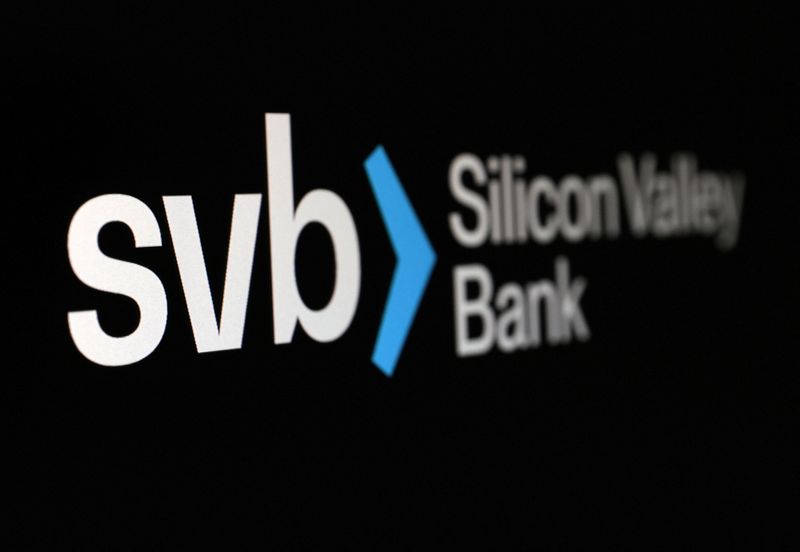Investing.com’s stocks of the week
By David Randall
NEW YORK (Reuters) - As U.S. banking contagion worries ebb, some investors are hunting for shares of fundamentally strong regional lenders that were swept up in this month's epic sell-off.
Investors sent a record net $236.2 million into the iShares Regional Bank ETF over the last two weeks, after Silicon Valley Bank's collapse earlier this month fueled concern about banking system stability and sparked a sector-wide rout. The ETF has slumped nearly 26% since March 8, when SVB's troubles became known, while the S&P Regional Banks Select Industry Index is down around 23%.
Concerns over deposit flight are still swirling around some regional banks. Some fund managers, however, believe the sell-off has created bargains and are building positions in companies they think will pull through.
"There's an awful lot of companies that we think of as being relatively far away from the center of the storm that are down more than 20%, so the valuations have improved materially," said Hunter Doble, a portfolio manager at Hotchkis & Wiley. He owns shares of large regional banks including Citizens Financial (NYSE:CFG) Group Inc, which have fallen about 22% so far this year, and US Bancorp (NYSE:USB), which are down some 18%.
Recent developments have buoyed hopes that the banking crisis may be contained. U.S. regulators said on Monday they would backstop a deal for regional lender First Citizens BancShares to acquire SVB, sending the rescuer's shares up nearly 54% on the day.
On Saturday, Bloomberg News reported that U.S. authorities are considering expanding an emergency lending facility that would offer banks more support.
Lawmakers are expected to put top U.S. bank regulators on the defensive over the unexpected failures of Silicon Valley Bank and Signature Bank (OTC:SBNY) when they testify before Congress on Tuesday.
Margie Patel, a senior portfolio manager at Allspring Global Investments, has been adding new positions in regional banks over the last few weeks, citing "value."
"The decline that we've seen in the sector is reflecting fears of repeating 2008 but I think it's fundamentally different," she said.
Banks will soon have a better match between revenue from higher-rate loans made over the past year and higher interest payments to depositors, a balance that went "out of whack" after the Federal Reserve raised benchmark rates nearly 500 basis points, Patel said.
Inflows into bank stocks and ETFs are also being bolstered as retail investors seek bargains in battered shares, analysts at Vanda (NASDAQ:VNDA) Research said last week.
Still, plenty of headwinds remain, especially for smaller banks whose clients have moved deposits to larger banks for greater stability. Clients may also be ditching their checking accounts in favor of short-term Treasuries, money markets and other investments with far higher yields.
Large banks gained $120 billion in deposits but small banks lost $109 billion last week, while money market fund balances grew by $121 billion, adding to record inflows earlier in the month, according to Moody's (NYSE:MCO) Investors Service.
Regional banks "need positive news that shows their deposits are holding firm or growing," said Rick Meckler, a partner at family office Cherry Lane Investments.
Investors have in recent days become more confident the Fed will raise rates at its next meeting, as worries over financial stability have ebbed. Higher rates could pressure margins while further boosting the allure of higher-yielding products that have been draining deposits.
Investors on Tuesday morning were pricing a 48% chance of another rate hike, up from a 17% chance on Friday, according to CME FedWatch Tool.
Still, Christopher Marinac, director of research at Janney Montgomery Scott, believes regional banks have stronger balance sheets than many fear, which enable them to weather a recession and an increase in bad loans.
Marinac recommends buying PacWest Bancorp and New York Community Bancorp (NYSE:NYCB) Inc, citing gains in the industry's loan loss reserve ratio - money set aside to cover bad loans - to an estimated 1.12% from 0.92% in the fourth quarter of 2019.
"We feel reserves are solid and rising for the banking industry," he said.
